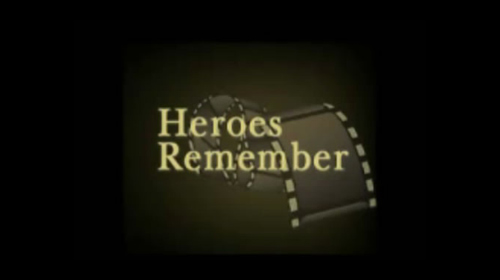Civilians suffer the most
First World War Audio Archive
Civilians suffer the most
Transcript
Hill 62 Memorial Belgium.
realized that they were only obeying the orders of their leaders.Courtrai Memorial Belgium.
And if they’d have had their way they might not have been there, same as we wouldn’t have been. But we certainly have no respectLe Quesnel Memorial Belgium.
or anything for leaders when they caused this. I think one of theGueudecourt Memorial France.
worst things about war is for the people of the country that live there, the civilians. I think that North America has always beenDury Memorial France.
so fortunate to have never had that and the people in thisMonchy Memorial France.
country have no idea. Nobody has any idea of war. We used to,Passchendaele Memorial Belgium.
these people would be trudging along the road, just trudgingMasnières memorial France.
along the road, carrying a bundle, maybe pushing a wheelbarrow,Bourion Wood Memorial France.
maybe having a donkey cart, just got nowhere to go. But surely to goodness, people won’t go to war again. When you think of, oh,Courcelette Memorial France.
the slaughter. It, it’s just horrible, and I hope North AmericaBeaumont-Hamel Memorial France.
will always escape. But it, and I often think a man that starts aSt. Julien Memorial Belgium.
war is the lowest down human being that there can be.Canadian National Vimy Memorial France.
Look at the millions of people you see that Hitler caused to beHill 62 Memorial Belgium.
dead. What bothers me is the British government, at that time.Courtrai Memorial Belgium.
Churchill did his best to warn them. You remember ChamberlainLe Quesnel Memorial Belgium.
going over and just because Hitler signed a piece of paper he’dGueudecourt Memorial France.
come back and “Peace in our time,” and in three months there was a war. And I heard a lecture at the community centre last yearDury Memorial France.
and he says, “Never, never, never believe a dictator.” And that’s the danger today, isn’t it?Monchy Memorial France.
Passchendaele Memorial Belgium.
Description
Mr. Ganong reflects on the enemy soldier, civilians displaced and killed during warfare, and expresses his contempt for warmongers.
Whitfield Ganong
Whitfield Ganong was born August 1, 1895 at Snider Mountain, New Brunswick. A second cousin to the Ganong chocolatiers of nearby Saint Stephen, he and his family lived on a mixed farm. Mr. Ganong enlisted in the 64th New Brunswick Battalion, having been accepted despite a bad leg and transferred to the 104th Battalion. He then joined the 26th Battalion as a Private and Lance-Corporal, and saw action in three major battles: Vimy, Hill 70 and Passchendaele. Mr. Ganong later worked as a teacher, shopkeeper and accountant, and married Katherine Ellen Herbert in 1924. He took part in a pilgrimage to France, and was shocked by the number of graves, yet awed by the work of the War Graves Commission. Mr. Ganong died on January 5th, 1989.
Meta Data
- Medium:
- Video
- Owner:
- Veterans Affairs Canada
- Duration:
- 1:45
- Person Interviewed:
- Whitfield Ganong
- War, Conflict or Mission:
- First World War
- Location/Theatre:
- Europe
- Branch:
- Army
- Units/Ship:
- 104th Battalion
- Rank:
- Private
- Occupation:
- Infantryman
Attestation
Related Videos
- Date modified:






